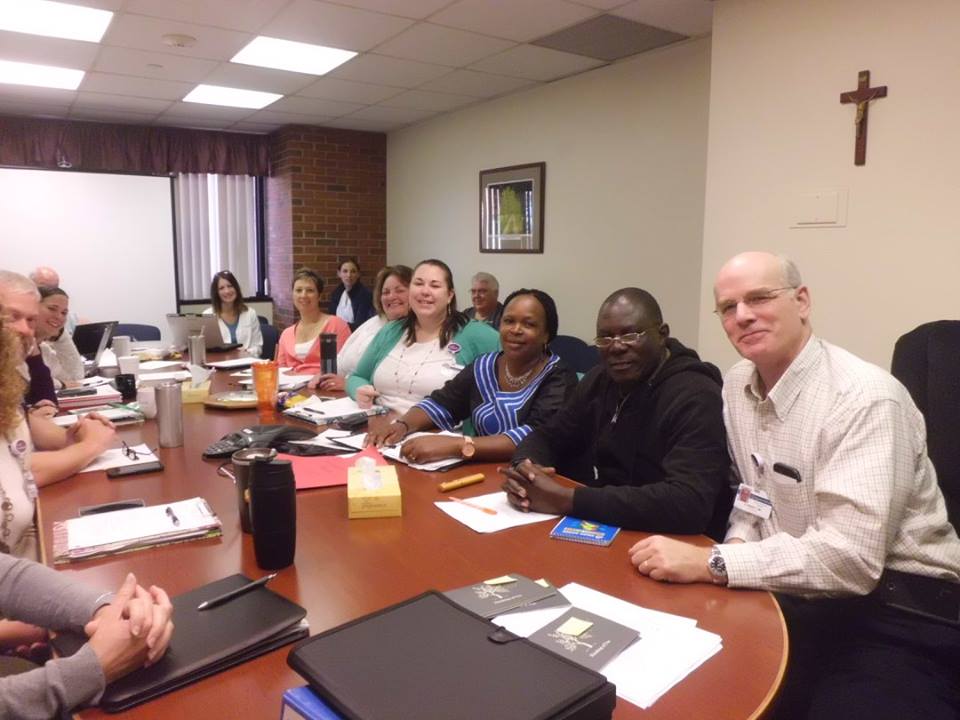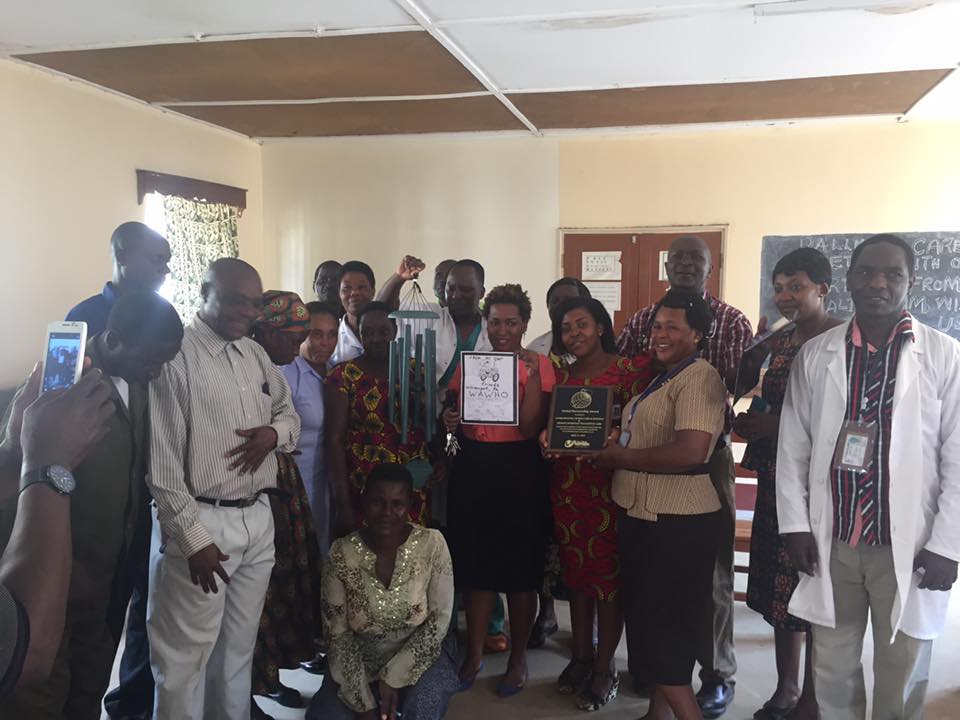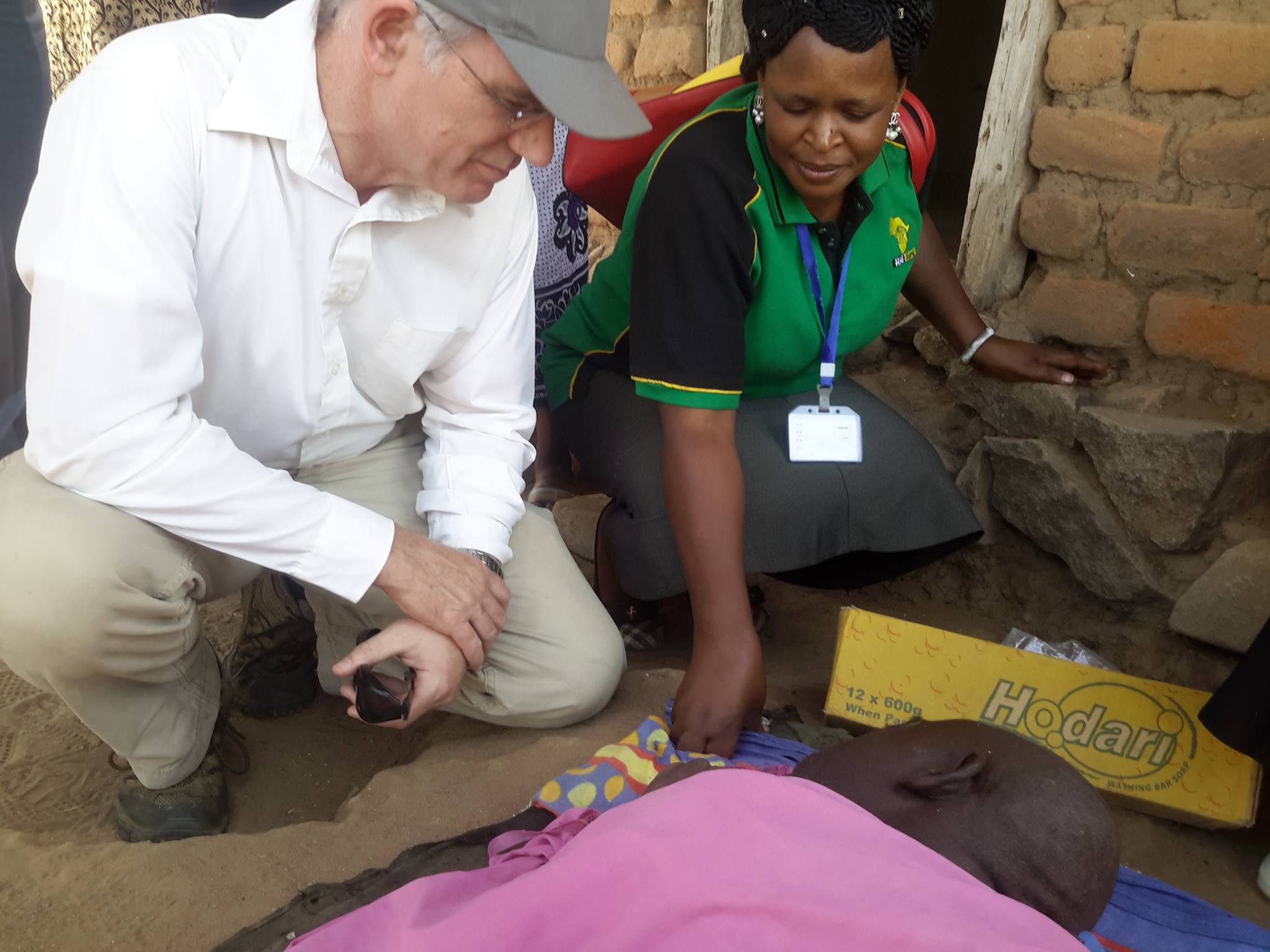The partnership between the University of Pittsburgh Medical Center (UPMC) Hospice and Palliative Care team and Shirati Hospital Palliative Care began in 2012. What began with a compassionate desire to support communities across the world in palliative care has grown into a collaborative partnership that has improved palliative care provision in the United States and Tanzania.

Relationships at the heart of partnership
From the establishment of the partnership, the partnership leaders – Dr. Alex Nesbitt from UPMC and Dorothy Kawira at Shirati Hospital – have kept relationship building at the core. Through this, they have been able to collaborate on many different projects over the years. Furthermore, this has allowed the partnership to continuously evolve as new needs arise and their respective organizations change.
This focus on relationships has also provided unique buy-in to the partnership. All funding provided by UPMC to Shirati comes entirely from supporters within the Williamsport, Pennsylvania community. During exchange visits, the UPMC team has ensured that the Shirati team not only meets members of the local community but also has opportunities to build deeper friendships that recruit additional champions to engage in the work of the partnership.
“Participating in the partnership has been an important distinction for our hospice organization, setting us apart from many other organizations which are focused exclusively on their own community, while drawing us together as we work to be good partners to our friends in Shirati.”
Dr. Alex Nesbitt
Retired hospice and palliative care physician and president of the partnership
The partnership between UPMC and Shirati has fostered a sense of solidarity between both communities in supporting the mission of hospice and palliative care. The unique relationships built between these partners has had far reaching impacts on their organizations and in their broader communities in bringing people together.
Partnership initiatives
As a result of their collaborative partnership, UPMC and Shirati Hospital have taken on many projects to expand access to palliative care in Shirati, Tanzania. These projects have both worked to address immediate needs that would reduce health-related suffering in Shirati and to promote sustainability in palliative care provision.

One of these core initiatives was working to ensure that members of the Shirati team could receive formal palliative care training through degree programs on the African continent. Dorothy Kawira, the lead of the palliative care team at Shirati, received her Bachelor of Science in Palliative Care from Makerere University in Kampala, Uganda with support from the partnership.
Beyond training, Dorothy and her team have been working to establish a formal network of palliative care volunteers throughout their service area. Recently, members of the partnership have worked to fundraise for stipends for these volunteers. This has supported the sustainable development of this program by the Shirati team and will continue to fundamentally expand access to community-based palliative care.
Bidirectional learning in palliative care
The partnership between UPMC and Shirati Hospital has provided invaluable insights in providing high quality palliative care for both organizations. For Allison Yamashita, a palliative care social worker and vice president of the partnership, she describes how the partnership has expanded her definition of palliative care. One of her most powerful reflections was learning how the palliative care team could play a role in reducing stigma towards those living with life-threatening conditions and educating the community, while simultaneously providing compassionate care.

As a result of this bidirectional learning, the team at UPMC shared how they have begun pairing team members on home visits to their patients. For example, this allows patients not only to receive care from a palliative care nurse, but also from a chaplain at the same time. This change in their care philosophy came directly from observing the Shirati palliative care team provide care to patients through a visit by multiple team members at once.
Dorothy Kawira’s team at Shirati has gained invaluable insight into caring for patients with complex conditions. The UPMC team hosts knowledge exchange sessions where both teams can learn from each other and discuss challenging cases. Through these sessions, both teams have been able to improve their care for patients with complex needs and innovate through challenging circumstances.
Furthermore, the Shirati team has been able to take lessons from watching their American colleagues facilitate discussions around end-of-life care and advanced care planning with families benefitting from palliative care services. They have integrated this practice into their palliative care provision in Tanzania.
Future directions
As the partnership moves forward, leaders from Shirati and UPMC are focusing their efforts on sustainability. Both sides have made concerted efforts to foster long-term buy-in from both of their communities to ensure that the partnership continues to grow and evolve well into the future.
Given the strong relationship between UPMC and Shirati, it is inevitable that their partnership will continue to evolve to bring high-quality palliative care to people in both of their communities. For more information about the partnership, visit https://www.supportshirati.org/.
